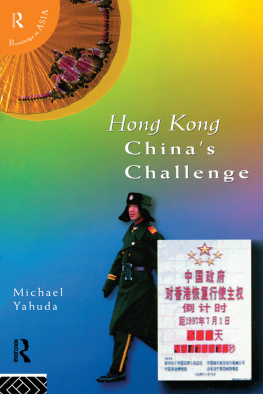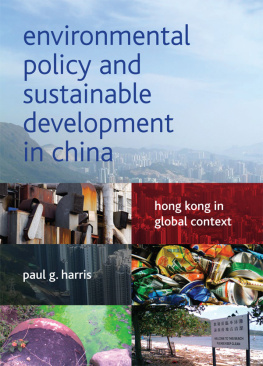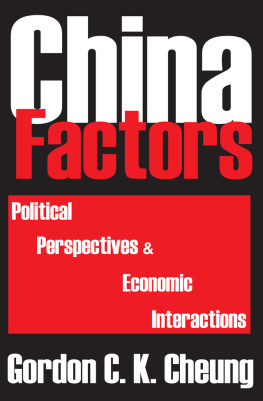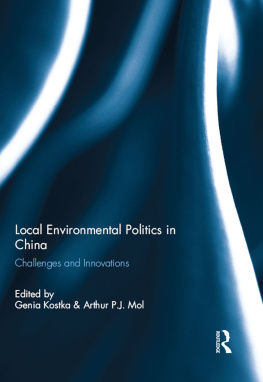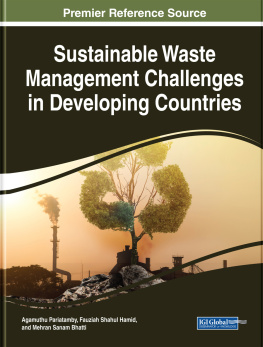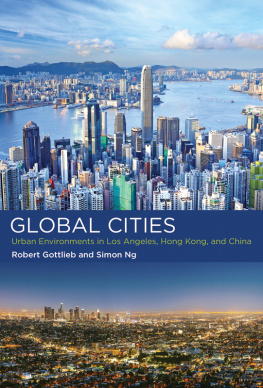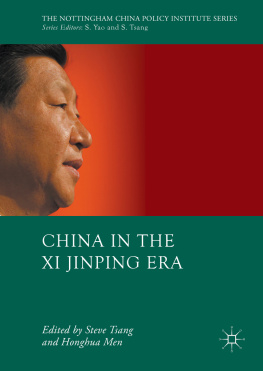The Politics of Waste Management in Greater China
The growth of municipal waste is a common challenge found in the urbanised cities of Greater China, but the question of how to manage municipal waste is controversial.
Wong examines the politics of managing municipal waste in three cities of Greater China: Guangzhou, Taipei, and Hong Kong. She looks at the controversies that arise from the issue and the consequent politicisation of the various solutions that are adopted. Focusing particularly on the dynamics of policy actors in the three cities, she compares the different political situations in each with the others. This provides a valuable lens through which to explore the larger issue of the political transformation of Environmental Management in the Greater China region.
A compelling insight into environmental policymaking in Greater China, for scholars studying the dynamics of Chinese politics.
Natalie Wai Man Wong is a visiting fellow in the Department of Public Policy, City University of Hong Kong.
Routledge Contemporary China Series
215 Doing Labor Activism in South China
The Complicity of Uncertainty
Darcy Pan
216 Chinese Energy Companies in Africa
Implications for the Foreign Policy of an Authoritarian State
Kasandra Behrndt-Eriksen
217 Chinas International Socialization of Political Elites in the Belt and Road Initiative
Theodor Tudoroiu
218 Regional Inequality in Transitional China
Haifeng Liao, Dennis Wei and Li Huang
219 Modern Art for a Modern China
Yiyan Wang
220 Ethnic Minorities, Media and Participation in Hong Kong
Creative and Tactical Belonging
Lisa Y.M. Leung
221 The Politics of Waste Management in Greater China
Environmental Governance and Public Participation in Transition
Natalie Wai Man Wong
222 Hegemony with Chinese Characteristics
From the Tributary System to the Belt and Road Initiative
Asim Dogan
For more information about this series, please visit: www.routledge.com/Routledge-Contemporary-China-Series/book-series/SE0768
First published 2021
by Routledge
2 Park Square, Milton Park, Abingdon, Oxon OX14 4RN
and by Routledge
52 Vanderbilt Avenue, New York, NY 10017
Routledge is an imprint of the Taylor & Francis Group, an informa business
2021 Natalie Wai Man Wong
The right of Natalie Wai Man Wong to be identified as author of this work has been asserted by her in accordance with sections 77 and 78 of the Copyright, Designs and Patents Act 1988.
All rights reserved. No part of this book may be reprinted or reproduced or utilised in any form or by any electronic, mechanical, or other means, now known or hereafter invented, including photocopying and recording, or in any information storage or retrieval system, without permission in writing from the publishers.
Trademark notice: Product or corporate names may be trademarks or registered trademarks, and are used only for identification and explanation without intent to infringe.
British Library Cataloguing-in-Publication Data
A catalogue record for this book is available from the British Library
Library of Congress Cataloging-in-Publication Data
Names: Wong, Natalie Wai Man, author.
Title: The politics of waste management in Greater China : environmental governance and public participation in transition / Natalie Wai Man Wong.
Description: Abingdon, Oxon ; New York : Routledge, 2021. | Series: Routledge contemporary China series | Includes bibliographical references and index. | Contents: Introduction : an analytical framework of understanding the context of politics of municipal waste management in Greater China Political context of Greater China : a glance view From waste battle to worlds miracle : municipal waste politics in Taipei City Guangzhou : roles of public participation in MSW governance Hong Kong : unresponsive collective action in MSW politics Policy transfer in municipal waste mangement : the Taipei model and its impacts on the Greater China Region Conclusion : same thought but different results.
Identifiers: LCCN 2020048607 (print) | LCCN 2020048608 (ebook) | ISBN 9780367333829 (hardback) | ISBN 9780367758998 (paperback) | ISBN 9780429319549 (ebook)
Subjects: LCSH: Refuse and refuse disposalGovernment policyChinaCitizen participation. | Refuse and refuse disposalGovernment policyTaiwanCitizen participation. | Refuse and refuse disposalPolitical aspectsChina. | Refuse and refuse disposalPolitical aspectsTaiwan.
Classification: LCC TD789.C6 W66 2021 (print) | LCC TD789.C6 (ebook) | DDC 363.72/80951dc23
LC record available at https://lccn.loc.gov/2020048607
LC ebook record available at https://lccn.loc.gov/2020048608
ISBN: 978-0-367-33382-9 (hbk)
ISBN: 978-0-367-75899-8 (pbk)
ISBN: 978-0-429-31954-9 (ebk)
Typeset in Galliard
by Apex CoVantage, LLC
After completing my PhD dissertation on the anti-incinerator protests in Beijing and Guangzhou of China in 2016, I started to think about the garbage politics over the Greater China region. Managing garbage is not only a policy in a society, but we also found that the topics related to garbage management, such as the interests of stakeholders as well as the polity respond to their interests and demands. Nevertheless, I found out that the dynamics among the cities, Hong Kong, Guangzhou, and Taipei as studies in this book, to learn and transfer the knowledge each other at both governmental and non-governmental levels, which beyond the political tension in cross-strait region in the recent years. What I hope to achieve my work is to provide the reader with a ground-level perspective about the political and social transformations among three places through studying the politics of MSW governance.
The last but not least, I completed this book with the support and advice from many people. Among them, I am hugely indebted to Prof. Neil Carter, Dr. Fengshi Wu, Prof. Zhidong Hao, and Dr. James Wong for advising me the ideas of the book. Dr. Marcus Chu, Dr. Vic Li, and Dr. Hon-fai Chan, whose friendship and shared the experiences in writing a book. A special thank you goes to numerous environmental non-governmental groups in Guangzhou and Taipei for accepting my interviews.
Finally, I have to note that the responsibility for any mistake and error in this book is mine only and apologise to anyone whom I have not mentioned to thank.
Natalie Wong
Hong Kong
16 October 2020
Introduction: an analytical framework of understanding the context of politics of municipal waste management in Greater China
Rapid economic growth and intensive urbanisation lead to municipal solid waste (MSW) generation, which is a common challenge to the world in the recent decades. Cities all over the world generate 1.3 billion tonnes of solid waste per year, which resulting in environmental-social controversies, and management of reducing wastes turns a prioritised urban service among the governments (Visvanathan and Trnkler 2003; Fobil et al. 2006; Moghadam et al. 2009; United Nations Environment Programme Report 2015). The waste disposed improperly and ineffective waste management turn into environmental pollution and health concerns in the society (United Nations Environment Programme Report 2015). Cities in the Greater China region are facing similar problem in the growth of solid waste generation and improper waste management, and arouse controversies among the societies. Provided that, an effective and appropriate municipal waste management should concern in the region.


